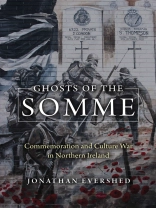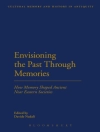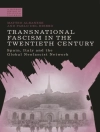Once assumed to be a driver or even cause of conflict, commemoration during Ireland’s Decade of Centenaries came to occupy a central place in peacebuilding efforts. The inclusive and cross-communal reorientation of commemoration, particularly of the First World War, has been widely heralded as signifying new forms of reconciliation and a greater ’maturity’ in relationships between Ireland and the UK and between Unionists and Nationalists in Northern Ireland. In this study, Jonathan Evershed interrogates the particular and implicitly political claims about the nature of history, memory, and commemoration that define and sustain these assertions, and explores some of the hidden and countervailing transcripts that underwrite and disrupt them. Drawing on two years of ethnographic fieldwork conducted in Belfast, Evershed explores Ulster Loyalist commemoration of the Battle of the Somme, its conflicted politics, and its confrontation with official commemorative discourse and practice during the Decade of Centenaries. He investigates how and why the myriad social, political, cultural, and economic changes that have defined postconflict Northern Ireland have been experienced by Loyalists as a culture war, and how commemoration is the means by which they confront and challenge the perceived erosion of their identity. He reveals the ways in which this brings Loyalists into conflict not only with the politics of Irish Nationalism, but with the ’peacebuilding’ state and, crucially, with each other. He demonstrates how commemoration works to reproduce the intracommunal conflicts that it claims to have overcome and interrogates its nuanced (and perhaps counterintuitive) function in conflict transformation.
Innehållsförteckning
Foreword
Acknowledgements
List of Figures
List of Tables
List of Acronyms
Introduction
1. (Re)theorising Commemoration
2. ‘What does it mean to follow a ghost?’: Locating ‘the field’ and the ethics of empathy
3. Policy, peacebuilding and ‘the past’ during the Decade of Centenaries
4. Peace as Defeat: Loyalism and ‘culture war’ in the ‘new’ Northern Ireland
5. ‘Our culture is their bravery’: Commemoration and the ‘culture war’
6. The Golden Age: Memory work and Loyalism’s conflicted hauntology
7. Dupes no more? Loyalist commemoration and the politics of peacebuilding
Postscript: All changed, changed utterly?
Bibliography
Om författaren
Jonathan Evershed is a postdoctoral research fellow in the department of Government and Politics, University College Cork, and a visiting fellow at the Institute of Irish Studies, Queen’s University Belfast.












